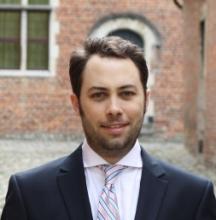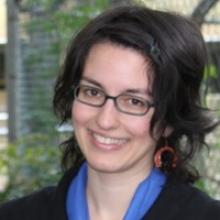Professor Sarah Coakley, the Norris-Hulse Professor of Divinity, was awarded a major grant by the Templeton World Charity Foundation in 2013 (nearly £1 million) for a ground-breaking interdisciplinary research project. The grant award followed much interdisciplinary background research and discussion between the Faculty of Divinity, the Faculty of Philosophy, the Department of the History and Philosophy of Science and several scientific research clusters.
Background
The project aims to address a serious blockage to interchange between theology or philosophy of religion and the sciences, namely the lack of adequate knowledge of actual scientific practice on the part of theologians and philosophers of religion.
Following a year of preparation and international recruitment, three highly skilled postdoctoral fellows have been appointed with appropriate theological and philosophical backgrounds at doctoral level.
The fellows will be embedded for three years in three scientific research clusters in Cambridge working at the cutting edge of their fields, and provided with substantial mentoring from both the science and the theology/philosophy sides of debate.
The fellows will also be associate members of Clare Hall for the duration of their fellowships, and will have regular opportunities in that context for engagement with each other, and with the wider Cambridge intellectual environment. Each fellow will pursue intensive engagement with the relevant scientists in their laboratories in Cambridge, consult with appropriate scholars nationally and internationally.
The three postdoctoral fellows will have the opportunity for an unusually deep engagement with working scientists, and will produce scholarly contributions in various formats.
By demonstrating the fruitfulness of extended, intensive cross-disciplinary engagement, this project will be a catalyst for the next generation of work on theology/philosophy of religion and the sciences, significantly increasing the pool of people with the training necessary to produce that work.
It will also develop the institutional capacity of Cambridge to host such work, by yielding deepened interdisciplinary relationships within Cambridge, between the Faculty of Divinity, the Faculty of Philosophy, the Department of the History and Philosophy of Science, and other relevant science departments and institutes.
The post-doctoral fellows
 Daniel De Haan
Daniel De Haan
Daniel comes to Cambridge after completing a BA in Philosophy and Classics at Belmont University (Nashville, TN), an MA in Thomistic Studies at the University of St Thomas (Houston, TX), and a PhD from both the University of St Thomas and the Katholieke Universiteit Leuven (Belgium). He will be conducting research in the neuroscience strand of the project, based in Dr Lisa Saksida’s Translational Cognitive Neuroscience Laboratory within the Department of Experimental Psychology.
 Natalja Deng
Natalja Deng
Natalja comes to Cambridge having completed a BA and MSc in Natural Sciences at New Hall (now Murray Edwards College) in Cambridge, and a BPhil and PhD in Philosophy at the University of Oxford. Most recently she has held postdoctoral positions at the University of Geneva and the University of Notre Dame (USA). She will be working in the cosmology strand of the project and working closely with both the Department of Applied Mathematics and Theoretical Physics and the Philosophy Faculty.
 Peter Woodford
Peter Woodford
Peter comes to Cambridge having gained a BA in Religious Studies and Philosophy from the University of Pennsylvania, and a PhD in Religious Studies and the Humanities from Stanford University. Most recently he has been a lecturer in the Department of Religious Studies at Stanford University. He will be working in the evolutionary science strand of the project, based in the Large Animal Research Group led by Prof Tim Clutton-Brock within the Department of Zoology.
